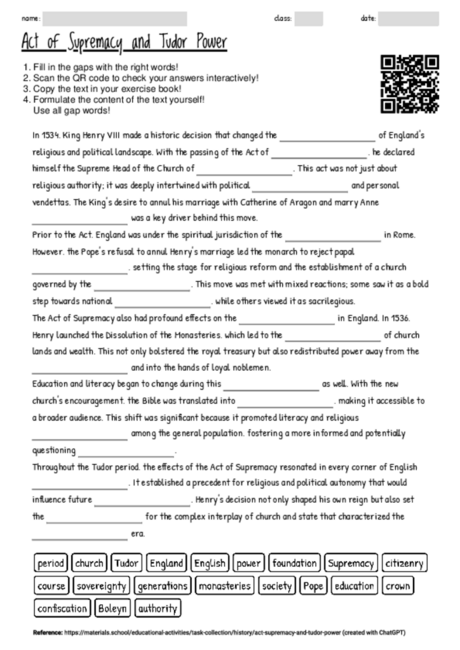Act of Supremacy and Tudor Power
The Act of Supremacy is an excellent example of how cloze texts can be used to focus students' attention on key aspects of a historical event. By selectively omitting crucial terms, students are encouraged to think critically about the significance of each term in relation to the Tudor period and the broader historical context. This method helps in reinforcing vocabulary and enhancing comprehension, especially in a classroom setting where students might be discussing or researching related topics.
The text also serves to introduce students to the complex interplay between religion and politics during the Tudor era. It highlights the personal motives of Henry VIII as well as the broader consequences of his actions, including the Dissolution of the Monasteries and the translation of the Bible into English. These aspects are crucial for understanding the shifts in power dynamics and the eventual establishment of Protestantism in England.
Using cloze texts like this one can stimulate inquiry-based learning, where students are motivated to research beyond the text to fill in gaps or to understand the implications of the missing keywords. This active engagement can improve memory retention and foster a deeper understanding of the subject matter.
Furthermore, this approach allows for differentiation in teaching, accommodating different learning speeds and styles. Students who might struggle with more extensive passages can benefit from the concise nature of cloze texts, which provide clear and focused content that is easier to manage and understand.
In summary, the Act of Supremacy cloze text not only serves as a tool for learning specific historical facts but also encourages a more comprehensive grasp of the Tudor period's impact on English history.

